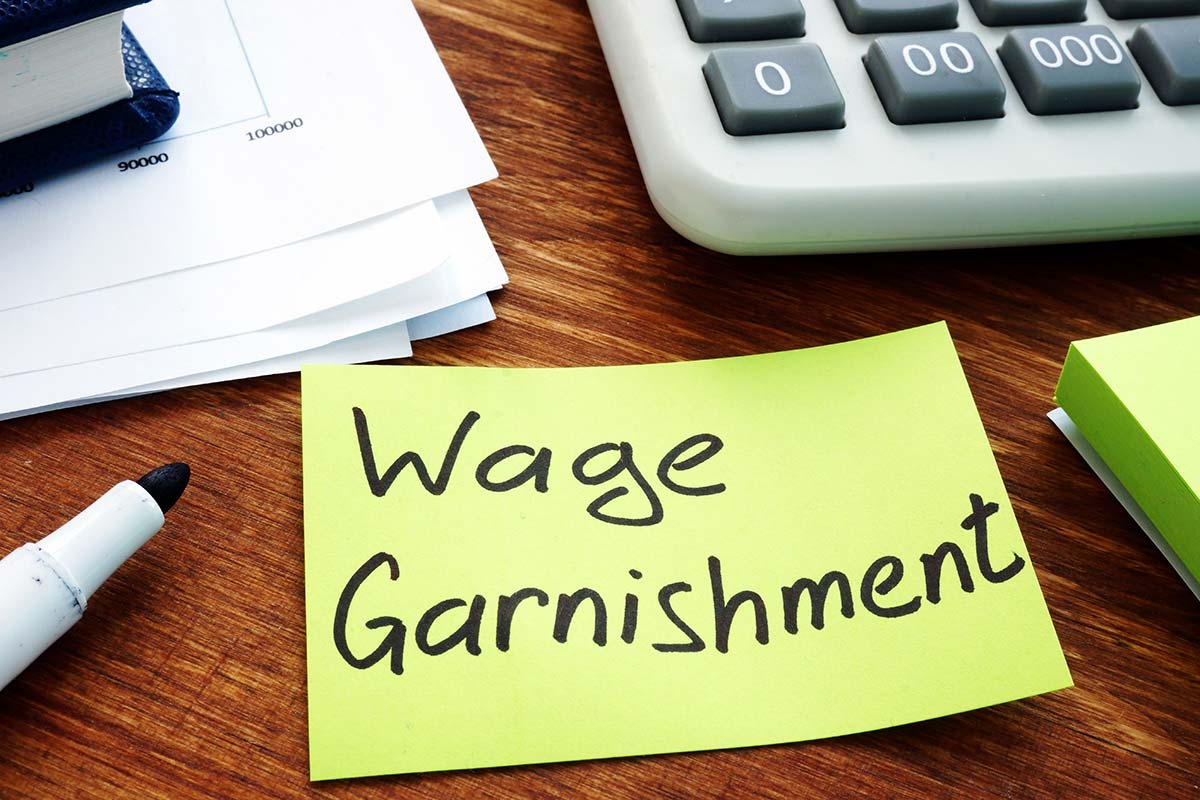Wage garnishment is a way for a creditor (someone you owe money) to collect money from you. This type of collection only happens after you go to court in a civil case, and the judge decides that you owe the creditor money. If you do not voluntarily make payments on the money that the court says you owe, then the creditor can tell your employer to take payments directly from your paycheck. This wage garnishment happens when an employer receives a document called an Earnings Withholding Order.
If a creditor wants to garnish your wages, the sheriff’s office will deliver several documents to your employer, including an Earnings Withholding Order. Your employer must give you a copy of these documents and provide information to the sheriff about your employment. Your employer also must start deducting payments from your paycheck and sending them to the sheriff. These deductions from your paycheck will continue until you have paid the full amount that you owe, plus any costs and interest.
Limits on Wage Garnishment
State law limits how much your employer can take from your check when it has an Earnings Withholding Order. To calculate how much your employer can take from your check to pay your creditor, you need to know your disposable earnings and the minimum wage in the area in which you work. The minimum wage is different in some cities than it is in the rest of the state.
Your disposable earnings are not the same as your gross pay or take-home pay. Disposable earnings are the money that you receive from your employer after mandatory deductions from your gross pay under federal, state, or local laws:
- Federal, state, and local income taxes
- Social Security and Medicare
- Other state and local taxes
- Mandatory payments to public employee retirement systems
The money that you receive from your paycheck after your employer deducts these items is your disposable earnings.
Your employer can only take the LESSER of the following two amounts from your check:
- 25% of your disposable earnings for the week; OR
- 50% of the difference between your disposable earnings for the week and the minimum wage for that week
You can use the Earnings Withholding Calculator if you want to estimate how much your employer will take from your check. You will need a copy of your paycheck stub showing all deductions in an average week to estimate the payments that your employer will take from your check to pay your creditor.
The state minimum wage in California is $12.00 per hour, although some cities’ minimum wage is higher. As a result, if your disposable earnings in a week are less than $480.00 ($12.00 per hour x 40 hours per week), your employer cannot garnish any payments from your check. If the minimum wage in the city where you work is higher, then the amount of your weekly earnings protected from garnishment is higher.
Stopping an Earnings Withholding Order
The only way you can stop a wage garnishment is to pay off the debt or file for bankruptcy. Filing for bankruptcy puts an automatic court order or stay in place that prevents any further garnishment of your wages, at least temporarily. A successful Chapter 7 bankruptcy discharge may erase the debt altogether, which means that you won’t have to pay it back. If you owe significant debts, then filing for bankruptcy might be an option for you.
Special Earnings Withholding Orders
Your employer also might receive an Earnings Withholding Order if you owe child support, tax debts, or student loan debts. These debts are different than regular debts that you might owe for a credit card, a repossessed vehicle, or a default on a lease agreement. In some cases, you don’t even have to go to court before your employer must deduct these payments from your paycheck. In other cases, your employer will receive an order to take a more significant amount of money from your paycheck than it could take for a credit card debt.
It would help if you kept in mind that some debts, like child support debts, are not dischargeable in bankruptcy. This means that you likely cannot erase a child support debt even if you file for bankruptcy. Although student loans and some tax debts are dischargeable in minimal circumstances, you may not be able to discharge those kinds of debts in bankruptcy. Getting legal advice in this situation is critical because bankruptcy may or may not be a good option for you, based on your circumstances.
Talk to LBE Law Firm About Your Options
LBE Law Firm offers individualized representation for individuals in various legal matters, including Chapter 7 and Chapter 13 bankruptcy filings. Our office will conduct a detailed review of potential consumer protection and/or Fair Debt Collection Practices Act violations as part of your bankruptcy review. We ensure you know your rights and can pursue claims against certain creditors if necessary. LBE Law Firm also handles other legal matters, including immigration law, family law, contracts, and wills and estates. You can reach us at 1-424-LBE-LAW4 (1-424-523-5294) (call, text, or WhatsApp) or via email at info@lbelawfirm.com.Please consult with us today to learn more about how we can help you with your case.


